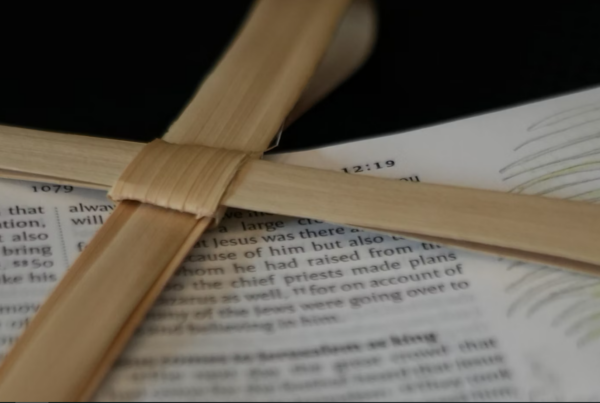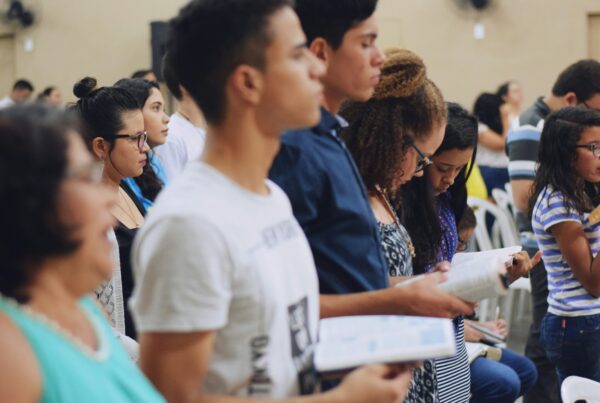There’s a whole generation of numbers, a whole generation of watching decline in church engagement, denominations, even Christianity. What older spaces need to understand is that the numbers are playing out against us. If you don’t innovate, you will die. It may take longer because of resources you have, but if you don’t do anything, you’re working towards death, and you’re only delaying that.
This material was originally recorded as part of the Renovations Project. It has been lightly edited and condensed for clarity.
What kinds of innovators work best?
Let that be motivation to innovate now, and understand that in innovation, some things are not going to work. And you need to go into it with a realistic picture. Everything an innovator tries, they think it’s going to be a success, but it’s not always going to work. I think all of my ideas are great and they all work, but they don’t. You may want to look for innovators that actually have failed. They should acknowledge at the beginning, “Some of what I’m going to do is just not going to work. And when things don’t work, here is how I deal with failure.” You need to have a preset understanding of how you’re going to deal with failure.
Related: 3 things to consider when you want to start something new
You need an innovator who’s just not afraid of risk. You need someone around who’s just not scared. They’re going to go for it. You cannot innovate under the umbrella of fear. You just can’t do it. Someone who is not scared is just going to keep pushing and keep doing it. I probably have way too much of that, but I think that’s key.
You need an innovator who is a relational connection point. The innovators who know how to be relational will help pull things along, even when they’re hard. I know when I bring an idea to the table, there’s going to be pushback. It’s just not going to go over easily; there’s going to be all kinds of institutional questions. Those things might drive me crazy, but always thinking beyond the innovation, about the people involved in your idea, that’s a relational connection point in your toolbox.
You need an innovator who knows when to step out. When an idea gets to a point where it’s really cool and it’s going really well, but the innovator doesn’t have the capacity, or the brain power, or the patience to manage it, it needs to go to the next step, which is probably someone with better management skills, not an innovator—so innovator to maintainer.
Related: Innovation moves the church forward
Keep traditions sacred without idolizing them
How do we keep sacred traditions within new culture and new space? I’m older; there are certain things that I like and that are sacred to me. I really love a good choir. I miss it. Worship teams are great, but a choir with a director, that’s good. Saying the same thing ten times in a row, that’s good.
Jesus helps us, actually, with our sacred traditions not becoming idols. I think we turn sacred traditions into idols if we’re not careful. I’ll use the example of Jesus and sabbath. “Remember the Sabbath day to keep it holy” is part of the Ten Commandments. This is heavy, sacred stuff that people plant their Christianity on, this idea of sabbath. Jesus comes along, and he and his disciples are working on the sabbath, according to the Pharisees and Sadducees. The Pharisees and Sadducees challenged Jesus because they are thinking about the law—the sacred tradition of sabbath and keeping it. This isn’t a bad thing, but in keeping the sabbath, they added things to do on the sabbath and things they couldn’t do on the sabbath. Jesus reminded them that sabbath was built for the man, not man for the sabbath (Mark 2:27); he’s saying that having a day of rest was to enhance life, not become a list of rules to follow.
Our sacred traditions can be celebrated, as long as we don’t make idols out of them. We make idols out of them when they become the thing as opposed to being a part of the whole of who we are as believers. For example, worship can become an idol when it is linked to our building, our pews, our organ, our time. It has to be at 11:00 on Sunday morning. Those things take what God meant to be sacred and made an idol of it. And then we’ve lost the sacredness of gathering ourselves together to refuel ourselves, to be in community together, to have a meal together.
Related: Why church leaders need to lead out of imagination, not memory
All of those things that come out of the sacredness of worship are lost because we made an idol of it. I think what churches have to do is look at the things they have made idols of and stop. We have precedence—Jesus just stopped. He basically said that he’s going to “work” on the sabbath because the sabbath wasn’t meant to be observed in the way the Pharisees and Sadducees were observing it anymore. We have a whole lot we have to look at, even in our own lives: what do I make an idol in my life that wasn’t meant to be?
Prepare for growth in diversity
We’ve got 20 years. By 2040, the diversity in the U.S. flips. White is no longer going to be the majority. Start planning, and working, and living now to represent a diverse world that’s coming.
How do you do that? How do you move into this well? How do all people get honored? What does our economy look like? What is the theology that you’re teaching look like when you’re thinking about how the majority of people will be people of color sitting in front of you? Plan for that now.
Related: Amazing Asian, Latin American, and Black theologians who write about Reformed theology
Pray towards that, that we enter and move into that space well. I believe that the world is moving towards what was predicted in Revelation: every tribe, every tongue, every nationality, every person (Revelation 7:9). I think God’s moving us to Revelation slowly. As we move towards that, that incredible kingdom of God, then how do we strategize, and plan, and how does that shape our theology? How does that shape how you go to church? How does that shape the songs you sing? Think about it now. Even if your congregation isn’t diverse right now, it will be. Get that in your head. I think that’s hard for people to get in their heads. I work in the great northwest area [of the United States] where it is majority white. We’re working in these spaces, like Spokane, Washington, which is 88 percent white. The public elementary schools are 48 percent white. That city’s going to change. Those kids right now in elementary school are going to grow up. They’re going to be teenagers in your town. You’re going to have towns where most of the teenagers are teenagers of color.
Related: How I’ve experienced the beauty of being Reformed and always reforming
Think about these things: people applying for jobs, people playing in your leagues, people at your museums, all of it. Think about your infrastructure based on who’s going to be there. I don’t know many people who don’t understand or know that we’re diversifying. We can do that better. We can do that well. We can plan into that. And not planning is a major component of many of our problems in the U.S. now. Leaders, ministers, people of the gospel, people of good will: plan for it to go well.

Renew your church’s imagination for ministry
The Renovations Project helps leaders learn, together.
- Thought-provoking masterclasses
- Personalized coaching
- Immersive visit to a ministry innovation hub
- Ministry innovation grants up to $5,000

Leroy Barber
Leroy Barber is director of innovation in the United Methodist Church. He is a pastor, innovator, entrepreneur, author, and lover of the arts. He has dedicated 30 years to working toward what Dr. Martin Luther King Jr. called “the beloved community.” Leroy and his wife, Donna, have been married for 35+ years and have six children. They both participated in listening sessions about innovation hosted by the Reformed Church in America.



